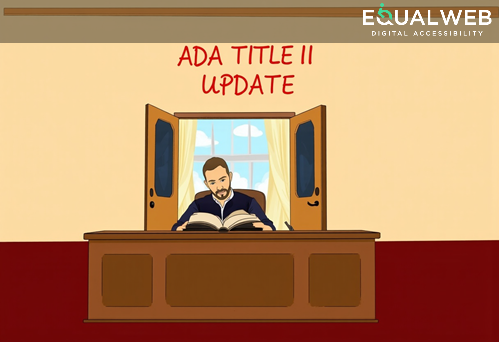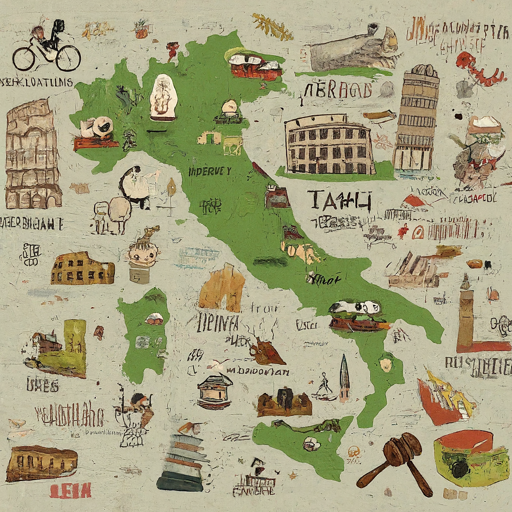What is known as the
Web Accessibility Directive (WAD) was enacted in 2011 in a bill named “the Directive of the President of the Republic No. 235 of March 4, 2011.” According to the decree, all public sector bodies are compelled to make their websites accessible to those with impairments. The regulation stipulates the
Web Content Accessibility Guidelines (WCAG) 2.0 as the standard by which to remediate websites.
Public websites that don’t meet certain WCAG criteria in terms of accessibility and usability for people with disabilities would be violating Italian law. The Italian government agency responsible for enforcing this regulation is the Garante per l’Accessibilità dei Siti Web delle Pubbliche Amministrazioni (GASWA).
WCAG 2.0 and accessibility statement
The WAD applies to all websites and web-based applications of public sector bodies, including national and local government, public administration, and state-funded institutions.
WCAG standards are an internationally recognized set of guidelines for making web content accessible to people with disabilities. The WCAG 2.0 guidelines are divided into three levels of conformance: A, AA, and AAA. The Decree requires that public sector websites meet Level AA conformance, which is considered the minimum level for accessibility.
The WAD also requires public sector websites to provide an accessibility statement, which must include information about the level of conformance of the website, any known accessibility barriers, and contact information for a person or department responsible for accessibility.
It is important to note that the regulation applies to new or significantly modified websites or web-based applications. Existing websites must have been compliant by December 31, 2016.
The Italian government agency responsible for enforcing the Directive is the Garante per l’Accessibilità dei Siti Web delle Pubbliche Amministrazioni (GASWA), which is the national authority for web accessibility in Italy. GASWA is responsible for monitoring compliance with the regulation, providing guidance and support to public sector organizations, and enforcing penalties for non-compliance.
Is the WAD relevant to your business?
The Web Accessibility Directive applies specifically to public sector websites and web-based applications in Italy, so private businesses are not directly subject to the regulation. However, private businesses may still be impacted by the regulation in a number of ways.
First, private businesses that provide goods or services to the public sector may be required to make their websites and web-based applications accessible as a condition of doing business with the government.
Second, private businesses that operate in certain industries, such as banking and insurance, may be subject to additional regulations that require them to make their websites and web-based applications accessible to people with disabilities.
Third, private businesses may also face legal action under Italy’s laws on discrimination, which prohibit discrimination against people with disabilities in access to goods and services.
Lastly, it’s worth mentioning that there is a general trend in the world towards web accessibility and many private businesses already have made or are working towards making their websites accessible. Why? To be inclusive, to reach a bigger audience, and also to avoid legal issues.
AgID accessibility declaration
AgID stands for Digital Agency Italy, or in Italian, “Agenzia per l’Italia Digitale.” According to the
official AgID Italian website, it “promotes and favors the dissemination of the accessibility of IT tools within the public administration and private individuals.”
Based on the WAD legislation, the AgID issued specific guidelines on the accessibility of information and technology tools, which came into effect on 10 January 2020. The guidelines direct the Public Administration to provide increasingly accessible services.
Public Administration refers to the Italian government and public sectors, regional municipal bodies, as well as transport or telecom sectors that have partial government ownership. The law also applies to private companies that cooperate with the public sector. These agencies and organizations are mandated to issue an accessibility declaration on the AgID website as well as an accessibility report once a year.
As the AgID website stipulates:
- By March 31 of each year, publish the accessibility objectives for the current year and the state of implementation of the plan for the use of teleworking.
- By 23 September of each year, carry out a complete analysis of the websites and fill in the accessibility declaration on https://form.agid.gov.it, providing the feedback mechanism and the access link to the implementation procedure in the accessibility declaration.
Contact an EqualWeb representative to learn how to make your website accessible for the best price.




